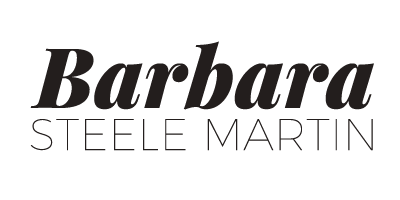COUNSELING & COACHING SERVICES
here for you
Psychotherapy is for everyone. We all deserve peace and clarity of mind. We all deserve the freedom to mindfully make room for our happiness, our hopes, our vulnerabilities, and successes. Personal counseling sessions allow for just that. See the different individual counseling and couples coaching options below:
anxiety
Anxiety Disorders affect about 40 million American adults each year. Anxiety Disorders often last at least 6 months and can worsen if not treated. There are different types of anxiety disorders such as Panic Disorder, OCD, PTSD, Social Phobia, Specific Phobia and Generalized Anxiety Disorder. Each has different symptoms but they are all characterized by excessive, irrational fear and dread.
The good news is that Anxiety Disorders are highly treatable. Barbara uses cognitive behavioral therapy, a well-established, highly effective and lasting treatment for anxiety disorders. Barbara’s treatment focuses on identifying, understanding and changing dysfunctional thinking and behavior patterns. Barbara empowers clients to be actively involved in their recovery, develop a sense of control and employ learned healthy coping skills.
depression
Depression is one of the most common mental disorders in the US, affecting an estimated 1 in 10 US adults. Depression is characterized by a severely depressed mood or activity level that persists 2 or more weeks. The symptoms can interfere with daily functioning, significantly impact social relationships and, for some, be debilitating. The causes of depression vary by person but, most likely include a combination of genetic, biological, environmental and psychological factors.
Barbara treats depression with the most proven effective therapies, cognitive behavioral and interpersonal. Barbara helps clients to restructure negative thought patterns into more positive and realistic interpretations of their environment and social interactions. Barbara also focuses on helping clients to change behaviors that may be making their depression worse. The interpersonal piece of the therapy helps clients explore troubled relationships and understand and work through how those relationships may be contributing to their depression. Barbara counsels clients on developing healthy coping mechanisms for managing those relationships and empowers them to change and overcome their unhealthy behaviors that interfere with their ability to enjoy life.
sports psychology
Barbara was a professional figure skater for over 10 years. After retiring from skating she trained in sport psychology at Boston University’s graduate sport psychology program under the tutelage of Dr. Len Zaichkowsky, a renowned expert on sport psychology and most recently, director of sport science of the Vancouver Canucks (NHL).
Barbara uses sport psychological techniques such as goal-setting, self-talk, exploring extrinsic and intrinsic motivators, attentional focus work, arousal regulation and imagery to help athletes and coaches improve athletic performance and motivation. Barbara also works with non-athletes to increase motivation to exercise and enhance well-being throughout their entire lifespan.
performance anxiety
Barbara has a profound understanding of the psychological rigors involved in having to perform under pressure. Barbara also spent 4 years counseling musicians on performance psychological techniques at the Berklee College of Music. Barbara specializes in working with athletes, actors, musicians, public speakers and other business professionals who experience intense anxiety in their performance or professional demands. Barbara employs cognitive behavioral techniques to help clients learn skills to reduce or manage their fears and break the cycle of avoidance so they can perform at an optimal level.
Barbara treats depression with the most proven effective therapies, cognitive behavioral and interpersonal. Barbara helps clients to restructure negative thought patterns into more positive and realistic interpretations of their environment and social interactions. Barbara also focuses on helping clients to change behaviors that may be making their depression worse. The interpersonal piece of the therapy helps clients explore troubled relationships and understand and work through how those relationships may be contributing to their depression. Barbara counsels clients on developing healthy coping mechanisms for managing those relationships and empowers them to change and overcome their unhealthy behaviors that interfere with their ability to enjoy life.
couples coaching
Barbara has an eclectic approach to couples coaching, tailoring her methods to the needs of each couple. At the core of Barbara’s approach is helping couples to take equal responsibility for awareness of the problem and their own contribution to the problem. Barbara provides a safe environment where couples can learn healthier methods of communication. A place where each individual is able to express themselves, be heard and hear the feelings of their partner. Barbara also focuses on fostering intimacy and a secure attachment by helping couples create emotional bonding moments. The ultimate goal is for couples to change their view of their relationship and to take control of the relationship’s destiny.
relationship issues
Barbara helps individuals approach relationship conflicts in constructive and effective ways. The bedrock of healthy relationships is good communication. Barbara helps individuals to employ active listening skills, effective speaking and strategies for problem-solving in a flexible and considerate way. Barbara will help individuals gain the ability to learn and grow through their interpersonal difficulties.
career/life transitions
Transitions can be stressful whether it is a change in relationship, job, school, physical health or place of residency. The journey through transitions can be a time of disequilibrium and disruption. People can experience a wide range of emotions that are both positive and/or negative such as uncertainty, confusion, anger, happiness, excitement, ambivalence and anxiety.
Barbara helps clients to explore their feelings and navigate their new responsibilities as well as their losses from leaving a familiar role or environment.
grief counseling
Grief is a reaction to loss whether it be the death of a loved one, a divorce or the loss of employment. People experience grief when they lose a significant form of attachment. After experiencing a loss people often feel a wide range of emotions. They can feel disorganized, tired, have difficulty concentrating, sleeping and maintaining normal eating habits. People can lose their ability to cope and feel debilitated in their daily functions.
Barbara helps people who have been disabled by their grief and overwhelmed loss. She aims to facilitate a process of resolution by creating a safe place for healing and feelings to be expressed. The work focuses on helping people develop healthy coping strategies to deal with the imminent changes in their lives and find a sense of peace.




